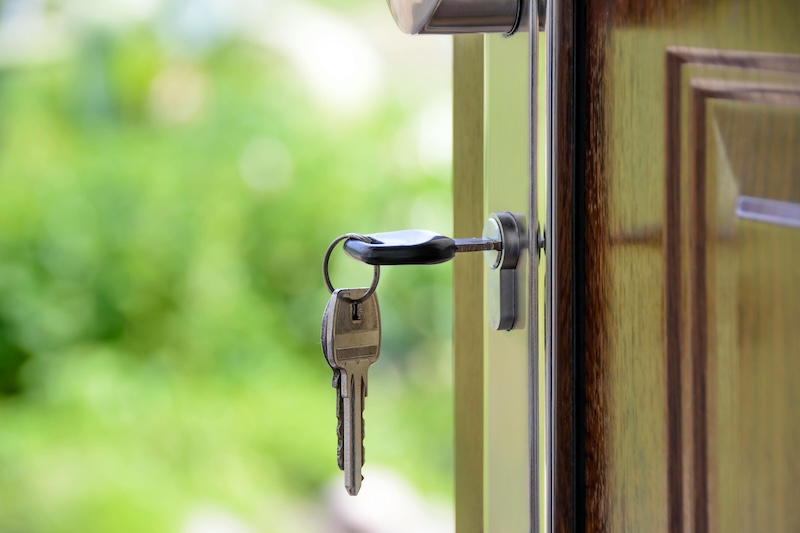Home Emergency Cover: How Does It Work?
Your safety net for life’s unexpected surprises.

Your safety net for life’s unexpected surprises.

Home emergency cover is a type of insurance designed to provide immediate help when unexpected problems arise that could damage your home or make it unsafe—like a broken boiler during a freezing winter or a sudden fuse box failure.
We’ll dive deep into what home emergency cover entails and why having it could be a smart move for homeowners.
Simply put, home emergency cover is an add-on or standalone insurance product that provides assistance and covers the cost of emergency repairs in your home. It ensures a tradesperson is sent promptly to solve urgent issues.
Unlike standard home insurance policies, which often cover the resulting damage of an emergency, home emergency cover focuses on addressing the cause of an issue to prevent further damage.
Though covers vary by provider, most home emergency insurance policies have common features. Here’s a closer look at typical inclusions:
Support for issues like a central heating system failure, boiler breakdown, or even a leak causing a loss of hot water. Many plans include a boiler service, provided the boiler is regularly maintained and within the policy’s age limit.
Covers urgent plumbing issues such as burst pipes, leaking taps, broken toilets, or blocked drains.
Addresses fuse box failures, power outages due to internal wiring issues, and similar problems (excluding grid outages).
Protection against common infestations, including mice, rats, or wasps. Exotic pests like bees or pigeons are often excluded.
Repairs for roofs damaged by bad weather, such as dislodged tiles or leaks.
Assistance in repairing damaged locks, broken windows, or doors that compromise your safety.
If your home becomes temporarily uninhabitable due to an emergency, policies may cover alternative accommodation costs.

Picture this: After a night out, you return home only to realise your keys are nowhere to be found. Locked out and stuck in the cold, you contact your home emergency cover helpline, which quickly arranges for an emergency locksmith. Within the hour, a professional arrives, helps you gain access, and even replaces the lock for added security.
The cost of the call-out and the £150 lock replacement is fully covered by your policy, turning a potentially stressful situation into a simple fix at no extra expense to you.
Like any insurance cover, home emergency cover comes with its exclusions. It’s vital to read the fine print to understand what your policy does and doesn’t cover. Common exclusions include:
It’s not required, so whether home emergency cover is the right choice depends on your individual situation. Consider the following factors to make an informed decision:
If you rent, emergency repairs are typically your landlord’s responsibility, so this cover is usually not available for tenants.
Yes. For homeowners, the big question is whether home emergency cover justifies the cost. Without coverage, emergency call-outs can quickly add up. Here are estimates for typical repairs across the UK (excluding VAT):
| Repair job | Typical cost |
|---|---|
| Emergency boiler repair | £100 to £500 |
| Burst pipe repair | £150 to £600 |
| Blocked drain | £500 to £4,000 |
| Emergency electrician call-out | £45 to £60 per hour |
Home emergency cover provides peace of mind by eliminating hefty repair bills during unexpected situations, saves time by connecting you with reliable tradespeople quickly, and helps prevent further damage through prompt fixes.
Yes, Lemonade offers Home Emergency as an optional add-on to our home insurance policies. This cover provides a 24/7 emergency helpline to assist with urgent issues like a broken boiler, electrical failures, or even if you’ve lost your house key.
To include this add-on, simply select it while customising your quote online or on the Lemonade app. Already have a Lemonade home building insurance policy? You can manage your cover—and add the home emergency add-on—anytime on the Lemonade app. Just remember, we won’t be able to cover any incidents that occur prior to the add-on being present.
Please note: This cover is exclusively available for homeowners, and is not available to add for tenants.
Life can throw surprises your way, but there’s no need to face them alone. Home emergency cover provides a simple, stress-free way to handle unexpected crises—from burst pipes to boiler repairs.
Take the next step in safeguarding your home—and your wallet. Explore Lemonade’s home emergency cover option and prepare for life’s “what-ifs.”
Home emergency cover deals with immediate issues that need urgent attention, like fixing a broken boiler or a burst pipe. Home insurance, on the other hand, typically covers the costs related to resulting damage from those emergencies, such as water damage from a leak.
The two are complementary, with home emergency cover focusing on preventing small issues from becoming much bigger problems.
Home emergency cover is usually intended for homeowners, as tenants are not responsible for most emergency repairs. If you’re renting, your landlord is typically responsible for managing and paying for any home emergency issues. However, it’s worth checking your tenancy agreement to confirm what is covered.
Home emergency cover providers generally work with their own network of approved tradespeople, so you can’t freely select someone. This is to ensure quality and accountability for the repair work. However, using their professionals often speeds up the process and eliminates the stress of finding a trustworthy tradesperson.
Most home emergency covers—including Lemonade’s—include a 24/7 helpline, ensuring you can reach someone at any time. Emergency repairs are classified as urgent situations, so a tradesperson will usually be dispatched promptly, regardless of whether it’s a weekend or bank holiday.
Emergencies directly caused by pets, such as chewed wires or damaged fixtures, are not covered. Home emergency cover is designed for unforeseeable problems like plumbing or heating failures, rather than issues related to pet behaviour. For such risks, you would need accidental damage cover.
It depends on the cause. Home emergency cover typically covers electrical faults within your home, such as fuse box failures or wiring issues.
However, it won’t cover power cuts caused by external factors, like issues with the national grid or power cuts due to high winds during a storm. Such concerns are managed by your utility provider, not your insurer.
Please note: Lemonade articles and other editorial content are meant for educational purposes only, and should not be relied upon instead of professional legal, insurance or financial advice. The content of these educational articles does not alter the terms, conditions, exclusions, or limitations of policies issued by Lemonade, which differ according to your state of residence. While we regularly review previously published content to ensure it is accurate and up-to-date, there may be instances in which legal conditions or policy details have changed since publication. Any hypothetical examples used in Lemonade editorial content are purely expositional. Hypothetical examples do not alter or bind Lemonade to any application of your insurance policy to the particular facts and circumstances of any actual claim.